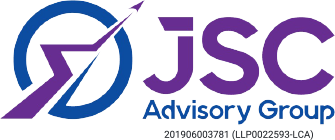Navigating E-Invoice Compliance: A Guide to Consolidated E-Invoices
Proof of Expense
The concept of proof of expense is pivotal for businesses aiming to validate their expenses for tax deduction purposes. An e-Invoice serves as a crucial document that substantiates the legitimacy of incurred costs.
For instance, consider Company A, which procured raw materials from Supplier B for RM200,000 and Supplier C for RM50,000. While Supplier B issued a computer-generated invoice to Company A, Supplier C opted for an e-Invoice.
In this scenario, Company A becomes eligible to claim tax deductions on the purchase from Supplier C, thanks to the e-Invoice provided as proof of expense. However, the purchase from Supplier B, which issued a computer-generated invoice (excluding e-Invoice), does not qualify for tax deduction.
(*Note: Computer-generated invoices, generated from accounting software, POS systems, etc., are not considered e-Invoices.)
Consolidated E-Invoice
Notably, certain customers, especially those in Business-to-Consumer (B2C) businesses like restaurants, fashion shops, recreation centers, stationery shops, bookstores, supermarket, hypermarket, etc., may not require an e-Invoice as proof of expense.
To simplify compliance with e-Invoice requirements and alleviate the burden on both businesses and customers, Lembaga Hasil Dalam Negeri (LHDN) permits businesses to consolidate transactions with customers not requiring e-Invoices. This consolidation can be done on a monthly basis, and the businesses should submit the consolidated e-Invoice to LHDN within 7 days after the month-end.
In cases where customers do not require an e-Invoice, businesses will issue a standard receipt, bill, or invoice. It's essential to note that these regular documents cannot substantiate transactions for tax purposes and are ineligible for tax deduction purposes.
Businesses must consolidate the standard receipts, bills, or invoices issued within a specific month into one consolidated e-Invoice, submitting it to LHDN within 7 days from the month-end. This streamlined approach aims to facilitate adherence to e-Invoice regulations while maintaining efficiency for both businesses and their customers.
Please do not hesitate to contact us for more information:
Ten Jia Sheng
014-911 1880
jsten@jsc-corp.com
23 Dec 2023








